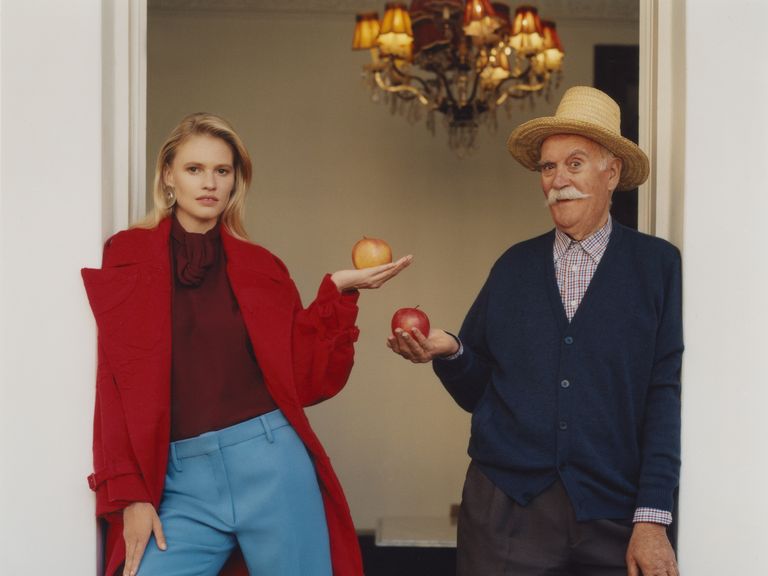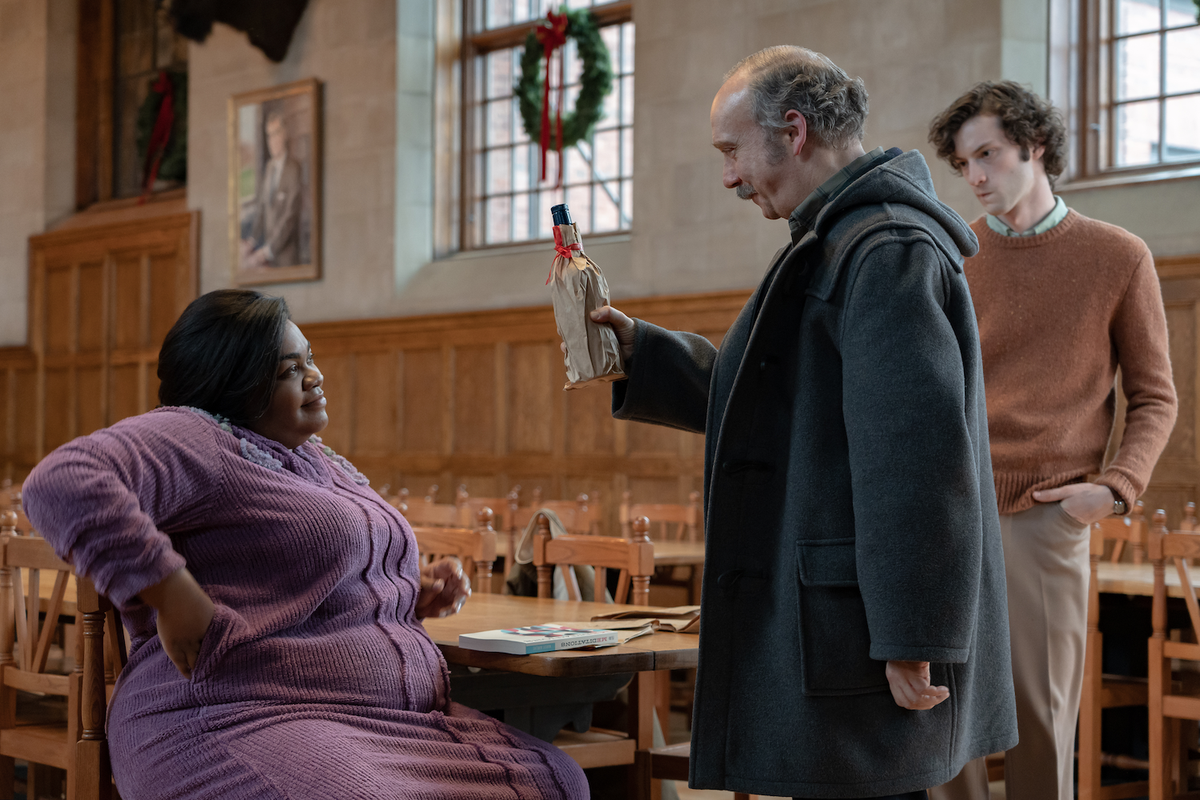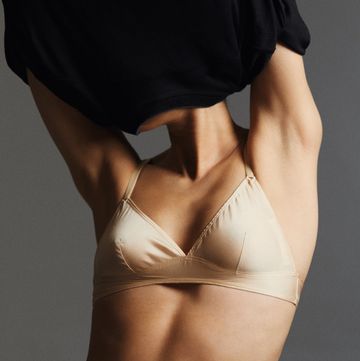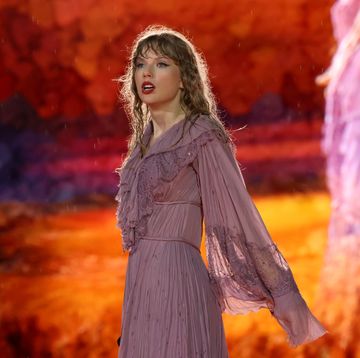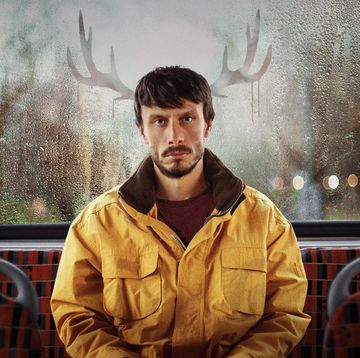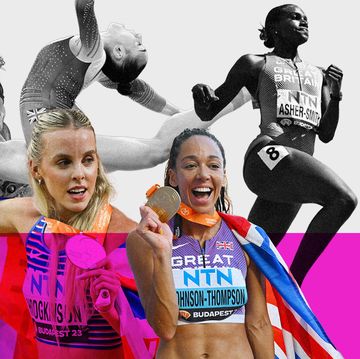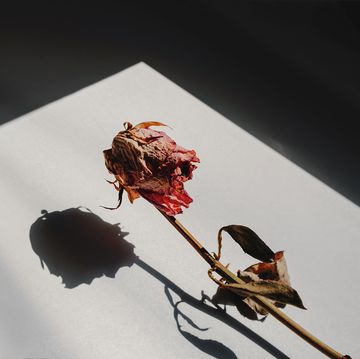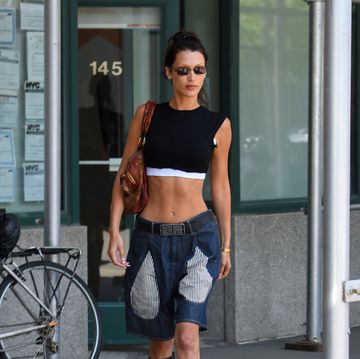I moved to London in September 2021. I was 21 and clueless. My job writing copy for a start-up paid next to nothing, so my fantasies of urban independence – black cabs; a working wardrobe in shades of navy; my own little pad – amounted instead to an hour-long commute via Tube dressed like a sixth-former on work experience and living as a lodger in the spare bedroom of a flat in Paddington, west London. In the evenings, as the late- summer dusk settled hazily over the city, I’d watch the cars reach the crest of the Westway flyover nearby and wonder idly where everyone was going – though, mostly, where on earth I was going and how long it would take me to get there.
The first few weeks I lived in the flat, my landlord Sophie and I crossed paths rarely, which was entirely by my design. I’d wait in my room until Sophie left for work, and go straight back there after dinner – a self-imposed isolation that would have continued had Sophie not taken matters into her own hands. She arrived home early one evening clutching a bottle of Sauvignon Blanc and over the contents of it – plus another gin and tonic and most of a packet of Marlboro Lights – we told each other about our lives.
Twice my age, Sophie ran a teaching charity. She was single and an only child, warm and witty, with lots of glamorous, interesting friends, collected magpie-like everywhere from former jobs to the half-marathons she ran. While we had different preoccupations (her: ailing parents and friends’ divorces; me: whether to dump my nice but dull university boyfriend), she never made me feel small or silly. Many of my twentysomething friends were scattered around London, too self-absorbed by survival to really be there for one another. Sophie became an anchor in my uncertain world.
Believe the headlines today, and friendships like mine and Sophie’s should never have worked then – and definitely wouldn’t work now. A 21-year-old girl and a 42-year-old woman? Instead of bonding over a glass of white, one would be making viral TikToks about her Gen X landlady while the other would be Facebook- status-ing a rant about entitled snowflakes. By most accounts, we are in the midst of a generational war.
FIND OUT MORE ON ELLE COLLECTIVE
Certainly, there are big, polarising forces at play. Gen Alpha are right to worry about the world burning. Millennials, who are – according to 2023 research by scientists at the University of Cambridge, Humboldt University of Berlin and Sciences Po – statistically more likely than the generation above them to live with their parents as they enter middle age, have grounds to feel disgruntled. And there is a chasm between Gen Z and their forty- and fifty- something parents, who navigated their teens and twenties in analogue.
‘I think one of the main reasons for generational divisions is that we’re living in a time where tech is changing the world so rapidly,’ agrees Alice Crossley, foresight analyst at trend forecaster The Future Laboratory. ‘The younger generations don’t feel they have anyone to relate to, or any role models. That’s something we see in Gen Z: “Yeah, OK, my parents might have been 16 at one time but they weren’t 16 when iPhones and TikTok were around.” There’s that feeling of disconnect because no one has really lived in that reality before.’
But while teenage years today are light years from the Boomers’ era, everyone’s current reality is tumultuous. Our political moment is volatile: Ukraine, Gaza, a cost- of-living crisis, the rollback of abortion rights, the unwelcome resurrection of Donald Trump. We are still reeling from Covid.
The result of all this turmoil is that many of us – regardless of age – feel untethered, uncertain and desperate for someone to tell us everything will be OK. Surely, the young could learn a lot from their elders about fortitude in tough times? And couldn’t these elders do with a shot of youthful energy to inspire them?
‘The political climate, particularly since 2016, has led me to the comfort of older friends numerous times,’ says Emily Bryce-Perkins, 39, who works in PR. ‘Ones who have lived through many governments, wars, recessions.’ In particular, she has turned to Ian Martin, a 70-year-old comedy writer on shows including Veep and The Thick of It, whom she met through an ex-boyfriend a decade ago. ‘Ian has been a constant place of solace,’ she says. ‘Politically we are aligned, and that brought great comfort when my political views were opposed to my family’s.’
Bette Levy, 78, who met her friend Fletch Williams, 34, in 2014 when Williams joined the NGO Levy worked for, thinks an intergenerational friendship can involve ‘educating each other to acknowledge new and emerging issues, as well as not allowing each other to become too jaded – forcing each other to think outside the box.
‘My generation were joiners, protestors; we marched [and] formed organisations. People of Fletch’s generation and younger commit to one issue – such as voter registration, climate crisis, abortion restrictions – then move on to the next major issue. They depend on social media to keep connected and apprised of what’s happening,’ Levy says. This zeal inspires her. ‘Fletch challenges me to stay active and look for solutions.’ ‘Bette has really demonstrated to me that really my generation and hers are not so different in our views, or wants, or aims,’ Williams says. ‘But often the ways we think we can achieve them are different.’
It’s a timely reminder that sweeping stereotypes about a generation’s politics and values rarely tell the whole story. ‘You have to be really conscious that no generation is a monolith,’ Crossley observes. Just because someone is in their seventies, it doesn’t mean you don’t have common ground – and just because someone is the same age as you doesn’t mean you automatically do. And whether you agree or disagree, you can talk about it and educate one another, rather than simply assume you’re too polarised to find a compromise.
Indeed, peel back entertainment’s veneer of youth, and there are zeitgeisty examples of the power of intergenerational bonds to change their characters’ worlds for the better. Take The Holdovers – which collected a galaxy of nominations at this season’s award ceremonies. It tells of the kinship between a cantankerous middle-aged teacher, a tearaway student and the school cook, who has just lost her son in the Vietnam War. In the austere con- fines of a New England prep school, each helps to reframe the world for the others.
Greta Gerwig’s Barbie is – in part – about bridging the gap between America Ferrera’s Gloria and her angsty teenage daughter. And remember that viral scene between Phoebe Waller-Bridge and Kristin Scott Thomas’ character Belinda in the bar in Fleabag’s second series? After their straight-talking meet-cute, both emerge with more compassion.
Sophie certainly changed what I thought about the world. Before I met her, I thought that 42 was ancient (I know) – hell, I thought 30 was ancient. Inevitably, I had also internalised the myths that society spins about older women, assuming that, after a certain point, their lives became muted and they fade away to grey. But Sophie hadn’t done that at all: she was vital and alive and colourful. Unlike me – see: boring boyfriend – she was always out on a Saturday evening, usually in a red lip, and she collected thrilling dating stories that were far more interesting than my friends’ (most of them had boring university boyfriends, too).
And although she wasn’t a colleague, she became an unwitting mentor of sorts. In her office, she was the boss; I struggled so badly to assert myself that I’d regularly choke down a mug of sweet tea because I was too scared to tell the colleague who made it that I didn’t actually take four sugars. I dreamed of working in journalism, but couldn’t work out how to get in. On weekday evenings – as Sophie tossed tender-stem broccoli into a wok and drowned it in soy sauce – she’d recount stories about her zigzagging career path, and her robust response to so-and-so when they hadn’t delivered a project on time.
Now, it is glaringly obvious to me that charm does not dim as you age, and that careers are not linear. But I needed Sophie to show this to me. ‘For me, an age-gap friendship has blown a load of misconceptions out of the water,’ says Claire Cohen, 40, author of BFF? The Truth About Female Friendship, who met Liz, 30 years her senior, at a pottery class.
‘[Like] that older people aren’t every bit as sweary, funny and surprising as the rest of us.’ Kara Buffrey, 29, an account director, became friends with Catherine, who is in her seventies, when they were both working at a luxury consignment store in Vancouver. For Buffrey it was her first job out of university, and she was feeling as lost as I was in my first year in London. ‘I found her so fascinating,’ Buffrey says. ‘We spoke about her punk-rocker days; our love of fashion and Vivienne Westwood.’
In turn, the adventures of youth make for enthralling stories. ‘The older women I interviewed for my book told me there was so much they got from their younger friends,’ Cohen says. ‘Energy, fresh conversation and a sense of keeping in touch with the world.’
There is also joy to be found in watching younger friends reach milestones. Levy – who is based in New York – says she knew when she met Williams’ now husband John ‘that he was the one for her’. ‘On his first trip to NY, very early in their relationship, I told them, while sitting in my living room, I’d be coming to the UK for their wedding. I did just that in February 2023.’
Meanwhile, the advice of older friends who have been there and done that can be invaluable when making seismic decisions. Bryce-Perkins spoke to her friend Ian – a father of two and grandfather of four – when she was starting to wonder about whether she wanted to have her own family. His judgement-free emails helped her to make her decision. ‘In one, he told me: “It’ll get hard and exhausting. But remember I will always be here offering
unconditional love and encouragement whenever you need it.”’ Now she has two young sons, and tries to pass her own hard-won wisdom onto ‘women younger than me who are considering having children. I try my best to be as honest and open as possible.’
Ultimately, today many of us live far from the communities we grew up in, so making our own new ones is more important than ever. That means focusing on shared interests and values – not about being born in the same cohort. ‘I think friendships are based on common bonds, not age,’ Levy observes. ‘To discover that you share interests, can hold easy conversations and laugh together can absolutely make someone feel more connected to the world,’ Cohen says. ‘And ensure that they feel they have a current place within it.’
After a year of living with Sophie, I moved into a house-share with four university friends. Without the intimacy of shared evenings, we eventually lost touch. But over the years, I’ve thought about her and our little life in that flat in Paddington, in my first terrifying year as a real adult, getting everything wrong.
I did, eventually, break up with that university boyfriend. I got my break in journalism; I invested in expensive navy knitwear. Slowly but surely – and with a fair few setbacks – I started to get a sense of where my life might be going, and how to handle it on my own.
But I’ll never forget that when I most needed someone to make my world feel manageable, Sophie was there for me – with a glass of wine and infinite kindness.
ELLE Collective is a new community of fashion, beauty and culture lovers. For access to exclusive content, events, inspiring advice from our Editors and industry experts, as well the opportunity to meet designers, thought-leaders and stylists, become a member today HERE.
